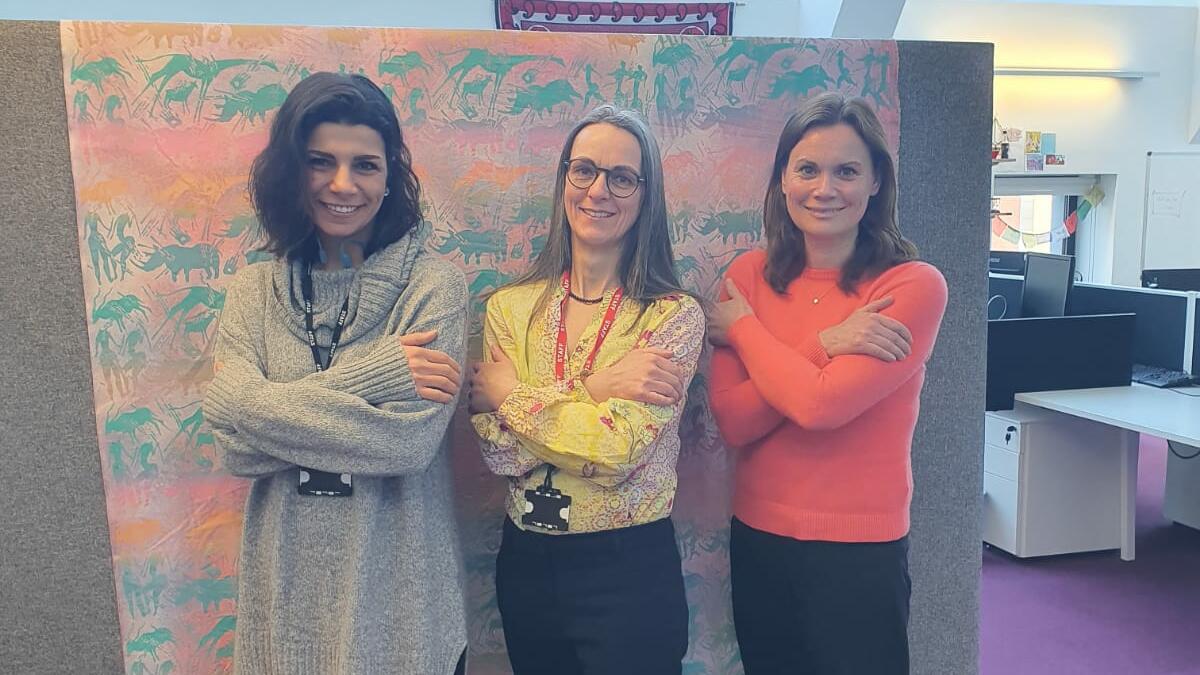
“My name is Beate Ringwald and I am a postdoctoral research associate focused on gender and equity with the Leaving no-one behInd: transforming Gendered pathways to Health for TB (LIGHT) consortium at the Liverpool School of Tropical Medicine (LSTM).” In this or similar ways have I introduced myself numerous times since taking the role in September 2022. On this International Women's Day, I ask myself how I should celebrate it this year, now that I carry a responsibility for driving the gender and equity agenda within the LIGHT consortium. Choosing from a menu of previous women’s day events, I – new to the consortium and new to the TB world – opt for reflection that informs action.
On this International Women’s Day, having recently completed my doctoral studies, I celebrate my role models, mentors, and partners. I think with gratitude of my family, friends, and communities who have encouraged, listened, nurtured, and supported me and made me grow as a woman, a practitioner, a friend, a researcher, a feminist, and in many other roles. I am also grateful for the warm welcome, trust, and openness of the LIGHT consortium team and partners. In this new role, I am privileged to join a whole team of gender equity enthusiasts, some of whom form the Gender and Equity Working Group – the consortium’s brain and heart driving its equity agenda at research, institutional, and consortium levels. It is an evolving and exciting task.
Commemorating International Women’s Day on the 8th of March involves also revisiting the theoretical and conceptual foundations underpinning gender equity. I celebrate the women and men whose genius ideas, concepts, and theories provide the lens and language to engage with sex disparities of TB incidence and mortality and the gender dynamics influencing exposure to TB and access to TB prevention and care. TB is caused by the bacterium Mycobacterium tuberculosis discovered over 100 years ago in 1882, but this alone is not the single driver of TB infection and disease which are numerous and complex. Power, gender, intersectionality, equity, and social justice theories and frameworks (among others) make it possible to engage with the complexity of TB – including gender.
This year’s International Women's Day theme “EmbraceEquity” stresses the need for linking theory and practice. From a participatory research perspective, knowledge, skills, and tools are relevant in as far as they lead to action and change. I celebrate the women and men who translated theories into approaches, methods, and tools facilitating equitable participation of women and men in all their diversity. The voices of affected communities – people with TB, family members caring for a person with TB (most often women), and healthcare workers – are essential for developing solutions that meet the needs of people of all genders. I am excited about the photovoice projects that LIGHT consortium partners intend to conduct in different settings. Starting in Karu with the Zankli Research Centre in Nigeria, photovoice projects will provide platforms for communities affected by TB to document their experiences, share their perspectives, and collaboratively seek ways to improve access to TB prevention and care.
The call to “EmbraceEquity” is also a call to shift focus on the goal. “Leaving no one behind” is a stated goal for the LIGHT consortium and the sustainable development agenda more broadly. This requires thinking about own position, role, ability, and suitability to represent and speak for people with TB. After having interacted with partners within LIGHT consortium in Kenya, Malawi, Nigeria, and Uganda, I am looking forward to engaging with the people and communities affected by TB whose health, voice, and well-being are central to LIGHT.
My way of commemorating International Women’s Day 2023 is to “pause and reflect” – a celebratory approach that prepares me to embrace equity within the LIGHT consortium (and beyond) in partnership with colleagues and communities every day of the year